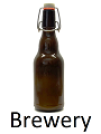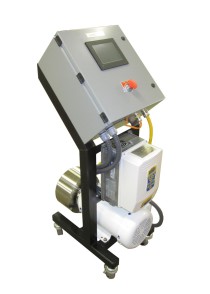Frequently Asked Questions (FAQ)
Do you have units available for rental?
Yes we do.
What size SPR units do you offer?
We make standard units from 1 L/min to 2,000 gallons/minute.
Can the SPR handle solids?
Yes, provided an appropriate SPR has been chosen with proper clearances in order to allow the solids to pass through. The bulk product must behave like a fluid in order to cavitate.
What is the maximum viscosity the SPR can handle?
If you can pump it through the SPR we can process it. Motor size and other parameters may need to be adjusted, but we've processed things as viscous as toothpaste, liquid mercury and solutions with 90% solids.
Can I use your technology to heat my home, heat water, make steam, etc?
Technically yes, but it's economical only if some mitigating circumstances are present. The SPR technology can heat water very effectively and efficiently (90%+), but rarely is it financially advantageous. In order to heat a fluid energy must be input into the fluid and this amount of energy is constant regardless of the technology utilized. The SPR most often utilizes an electric motor to supply the required energy as opposed to combustion. Currently natural gas (a common fuel for standard boilers) is at historically low price levels that are predicted to persist for years. Today when the same amount of energy is priced in both natural gas and electricity, the natural gas is typically a fraction of the price. The SPR is also a precision engineered high rotational speed technology and almost always more expensive compared to simple boilers of similar size.
Current prices in our home state of Georgia for 1 million btu worth of energy (293 KW equivalent) are $1.64 for natural gas and $29 for electricity (assuming $0.10/Kwhr) with comparable efficiency.
Therefore we typically find the SPR is not the most economic way of heating relatively clean and pure water on both a capital and operating cost basis. Generally water heating will be cheaper a conventional boiler, however there are mitigating circumstances where this premium can make sense such as:
- Products where scaling and fouling require frequent shutdown
- Heating impure liquids and liquids with solids
- Heating viscous fluids
- Heating where simultaneous mixing is required
- Heating without flame or autonomously is required
How big of an SPR do I need to heat my fluid?
Using standard thermodynamics you can divide your BTU requirement by 2545 and this will convert it into mechanical HP. For example, a typical home hot water heater is 40,000 BTU. If you divide this by 2545 to convert to HP it requires a 15 HP electric motor to provide the same energy. Please see the calculator below to help you.



